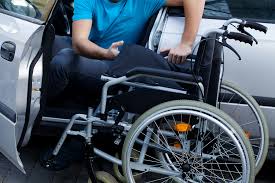Preparing for a disability driving assessment can seem daunting, but with the right preparation, you can approach the process with confidence. This assessment plays an essential role in determining whether you are fit to drive and what adjustments may be necessary to ensure your safety on the road. Whether you are new to the process or preparing for your next assessment, here are some tips to help you get ready.
1. Understand the Purpose of the Assessment
A disability driving assessment is designed to evaluate your ability to operate a vehicle safely. It takes into account various factors, including your physical and cognitive abilities, and assesses how well you can respond to different driving scenarios. Knowing the purpose of the assessment helps you mentally prepare and understand what to expect during the process.
2. Gather All Necessary Documentation
Before attending your disability driving assessment, make sure you have all the required documentation. This might include medical records, proof of your disability, and any relevant reports from healthcare professionals. Having these documents on hand will ensure that the assessment process runs smoothly and that the examiner has all the information needed to make an informed decision.
3. Schedule a Pre-Assessment Consultation
If you’re unsure about the process or have specific concerns regarding your disability, scheduling a consultation with an experienced NDIS service provider in Adelaide can be beneficial. These professionals can provide you with insights into what to expect, offer advice on adjustments that may be necessary, and help you mentally prepare for the assessment.
4. Focus on Your Health and Well-Being
In the weeks leading up to your disability driving assessment, it’s essential to prioritise your physical and mental well-being. A well-rested body and mind will perform better during the evaluation. Ensure you are following your treatment plans, taking medications as prescribed, and focusing on staying healthy. If any changes to your health occur before the assessment, notify the relevant authorities as it could impact your ability to drive.
5. Practice Driving in a Safe Environment
If your assessment will involve a practical driving test, it’s important to get some practice before the day of the evaluation. Practice in a quiet, familiar environment, ideally with a family member or driving instructor. Familiarise yourself with the vehicle, especially if adjustments have been made to accommodate your disability. Practising will help build your confidence and ensure you feel comfortable behind the wheel during the assessment.
6. Learn About Adaptive Driving Aids
For individuals with disabilities, adaptive driving aids can significantly improve safety and ease of driving. Before your disability driving assessment, learn about the various aids available, such as hand controls, steering aids, or accessible vehicle modifications. If you think you might require these aids, discuss them with your healthcare provider or NDIS service provider in Adelaide in advance. The assessor will also take these aids into account during the evaluation to determine whether they’re a suitable solution for you.
7. Be Honest About Your Abilities
During the assessment, be honest about your limitations. If you have difficulties in certain areas, such as reaction time or mobility, it’s important to communicate these openly. The goal of the assessment is to ensure that you can drive safely, and being honest will help the examiner make the best recommendation for you.
8. Prepare for Post-Assessment Recommendations
Once the assessment is complete, the examiner may recommend a variety of options, such as taking additional lessons, making vehicle adjustments, or in some cases, stopping driving altogether. Preparing yourself for all possible outcomes will help you accept the recommendations more readily, whatever they may be. If adjustments are recommended, working with your NDIS service provider can help you understand and implement them.
9. Focus on Mental Preparation
Finally, preparing mentally for the disability driving assessment is just as important as preparing physically. Stay positive and approach the process with confidence. Understand that the goal is your safety and well-being, not to pass or fail. The assessment helps ensure that you’re capable of driving safely, which will ultimately help protect you and others on the road.
Conclusion
Preparing for a disability driving assessment is an essential step toward ensuring you can drive safely and comfortably. By gathering your documents, understanding the process, practising with adaptive aids, and preparing both physically and mentally, you can approach the assessment with confidence. Remember to work closely with an NDIS service provider to ensure you’re fully prepared for every step of the process. Safe driving is not only about passing the test but ensuring that you have the right support to continue driving safely in the future.


